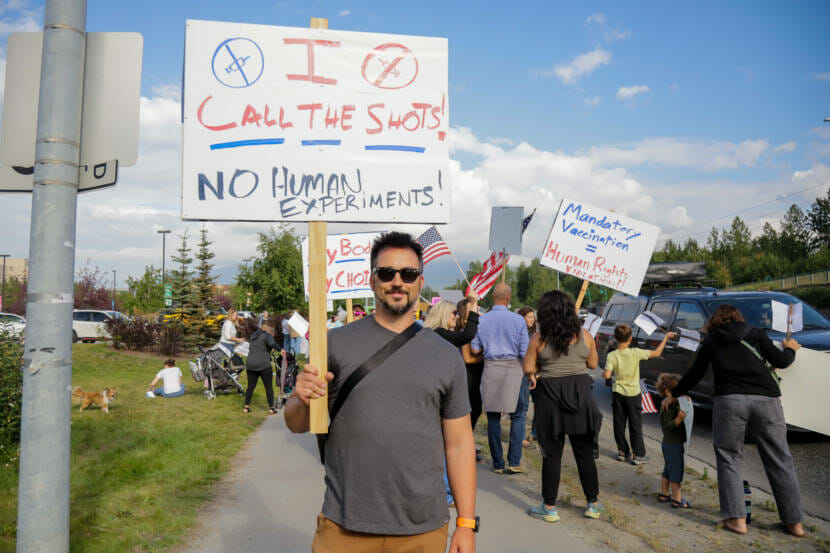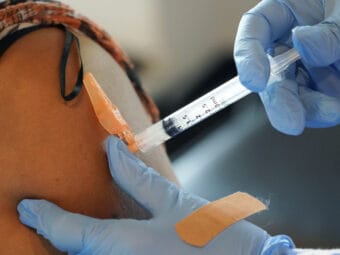
Health care professionals in Alaska say they’re frustrated by the abundance of misinformation about COVID-19 prevention and treatment that continues to circulate online.
Speaking on Talk of Alaska Tuesday, they said some patients continue to request unproven COVID-19 treatments like ivermectin and hydroxychloroquine, and a small number of doctors actually prescribe them despite the lack of data supporting their effectiveness. Medical experts say these drugs and others can harm patients.
Dr. Tom Quimby, the director of Mat-Su Regional Medical Center’s emergency department, said randomized trials and proper data collection is the only way to prove treatments work. But so far, trials for ivermectin have not shown any benefit for treating COVID-19, he said.
“We know most people that get COVID will recover and will do fine, and so the challenge with that is, I could tell 10 people coming into an outpatient office with COVID to put ketchup on their earlobes, and statistically, they’re going to get better,” he said. “And likely they’ll attribute whatever they did to them getting better, but we already established that most people are going to get better if they do nothing.”
Quimby said drugs like ivermectin distract from treatments that actually work. It can take up valuable time, he said, when doctors are trying to care for a patient while they or their family members demand the unproven treatments.
Dr. Robin Ninefeldt was among more than 100 doctors who signed a letter last month asking the state medical board to investigate COVID-19 misinformation. Ninefeldt, a family physician with a background in epidemiology, said the misinformation is fueling fear and conspiracy theories that add to an increase in confrontations with patients and the public.
“We honestly want our patients and our state to do well, to thrive, and we’re doing our best,” Ninefledt said. “But when people call us — for instance I was called a murderer when I spoke at the Assembly. I’m not a murderer. None of my colleagues are murderers. We’re doing our very best to keep you healthy.”
Public opposition to mask and vaccine mandates add to the tension. Pharmacist and Soldotna City Council member Justin Ruffridge said he’s found mask and vaccine mandates aren’t as effective as personal conversations with those who remain skeptical about vaccines.
“Unfortunately it’s the most inefficient thing of all time — it’s one-on-one conversations with people,” Ruffridge said. “Answering questions, hearing their fears, talking to them, you know, openly and honestly and not treating them like they’re a problem or that they’re unintelligent.”
According to the state health department’s online dashboard, 56% of Alaskans age 5 and up are fully vaccinated.
Booster shots are also widely available and recommended for those who received their first Pfizer or Moderna vaccine dose at least six months ago or the Johnson & Johnson vaccine at least two months ago.



